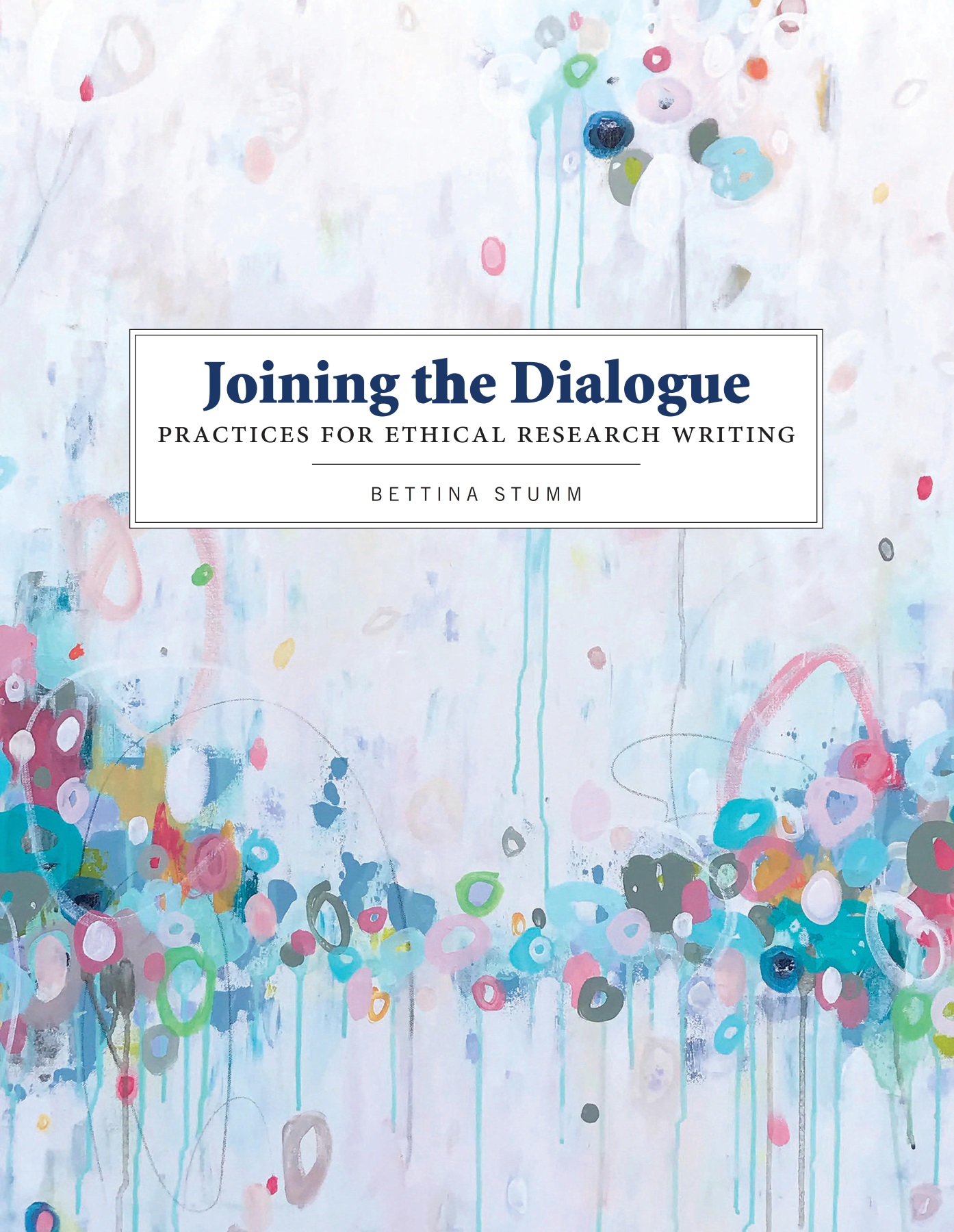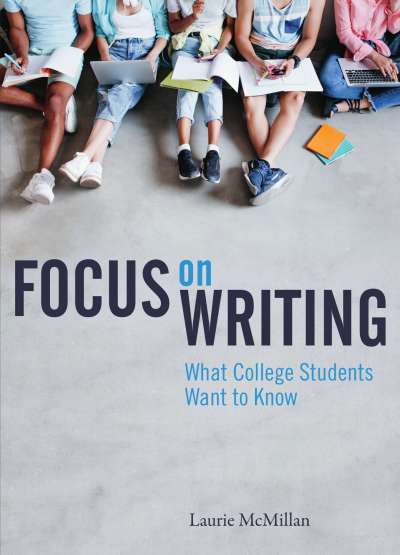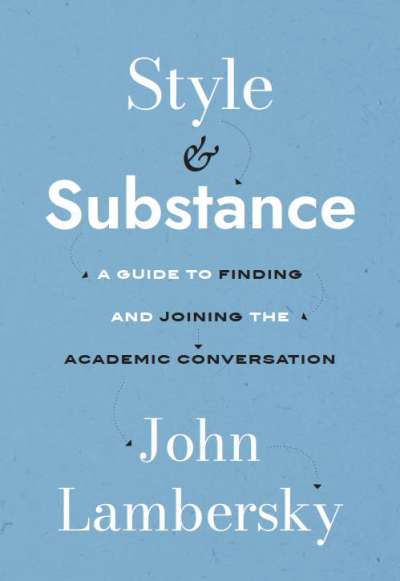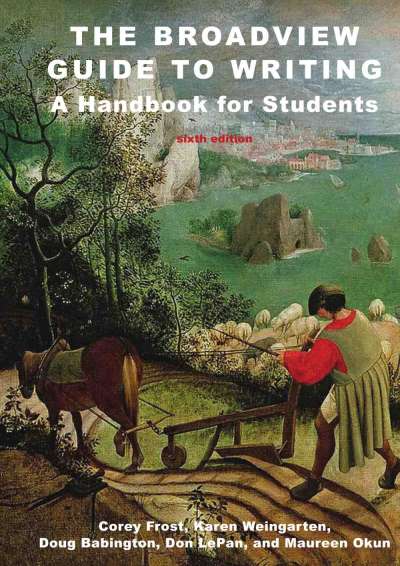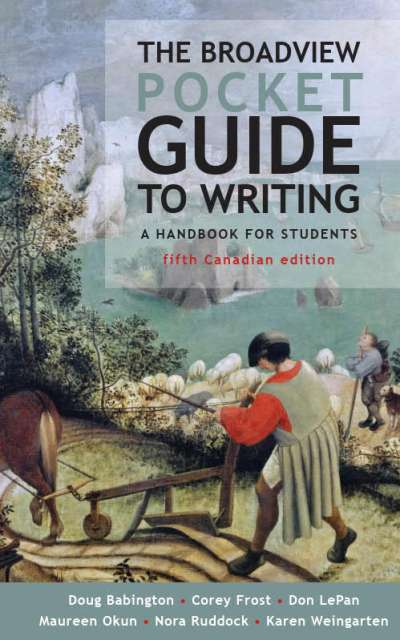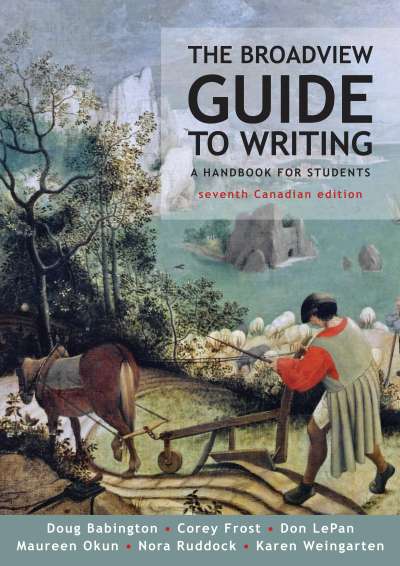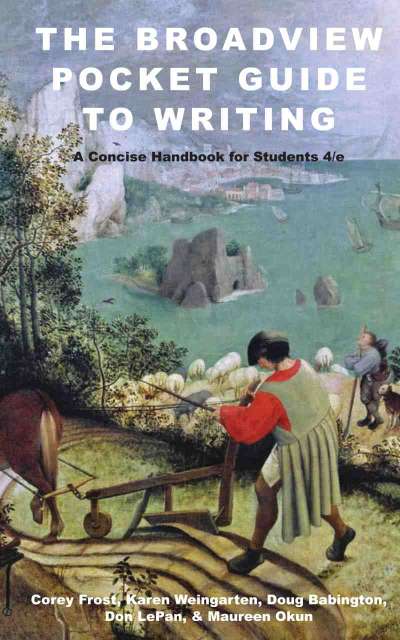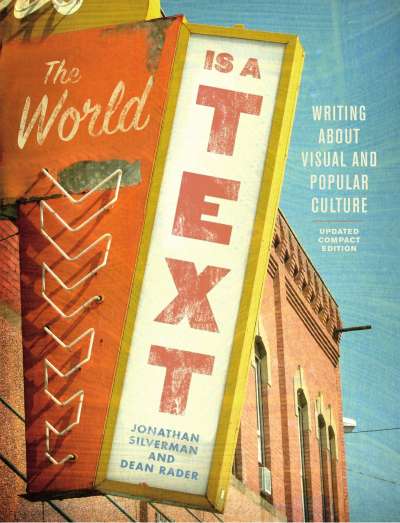Joining the Dialogue offers an exciting new approach for teaching academic research writing to introductory students by drawing on communication ethics. Holding to the current view that academic writing means situating ourselves in a research community and learning how to join the research conversations going on around us, Joining the Dialogue proposes that how we engage in dialogue with other researchers in our community matters. We not only read, acknowledge, and build on the research of others as we compose our work; we also engage openly, attentively, critically, and responsively to their ideas as we articulate our own.
With this in mind, Joining the Dialogue is geared to helping students discover the key ethical practices of dialogue—receptivity and response-ability—as they join a research conversation. It also helps students master the dialogic structure of research essays as they write in and for their academic communities. Combining an ethical approach with accessible prose, dialogic structures and templates, practical exercises, and ample illustrations from across the disciplines, Joining the Dialogue teaches students not only how to write research essays but also how to write those essays ethically as a dialogue with other researchers and readers.
Comments
“In Joining the Dialogue, Bettina Stumm unfolds the revelatory nature of inquiry. With thoughtfulness and eloquence she outlines the dialogic nature of inquiry, from its origins to its editing conclusions. Stumm gently transports the reader away from words like ‘imposition’ and ‘argument’ and toward the pragmatic reality of dialogic learning. This book is an insightful introduction to an intimate linkage of research and dialogic learning throughout all stages of inquiry. Her work reminds us of the dialogic gift and responsibility that scholarship calls forth. Stumm unites dialogue and the writing process, giving us a path for the discovery of what matters.” — Ronald C. Arnett, Patricia Doherty Yoder and Ronald Wolfe Endowed Chair in Communication Ethics and Professor in the Department of Communication & Rhetorical Studies at Duquesne University, author of Communication Ethics and Tenacious Hope: Contemporary Implications of the Scottish Enlightenment
“In a clear, engaging style, Bettina Stumm invites readers into a constructive conversation about the ethics of scholarly research and writing as reception and response. Grounded in dialogic theory, this practical volume guides us beyond scholarship as a technical, mechanical process to academic research and writing practices as ethical, relational engagement with the ideas of others and with the larger academic community. Through detailed instructions accompanied by a wide range of examples and useful exercises, Stumm offers a unique entry point for undergraduate and graduate students, as well as experienced scholars, seeking to participate in meaningful academic communication across a variety of disciplines and research writing genres.” — Janie Harden Fritz, Duquesne University

